
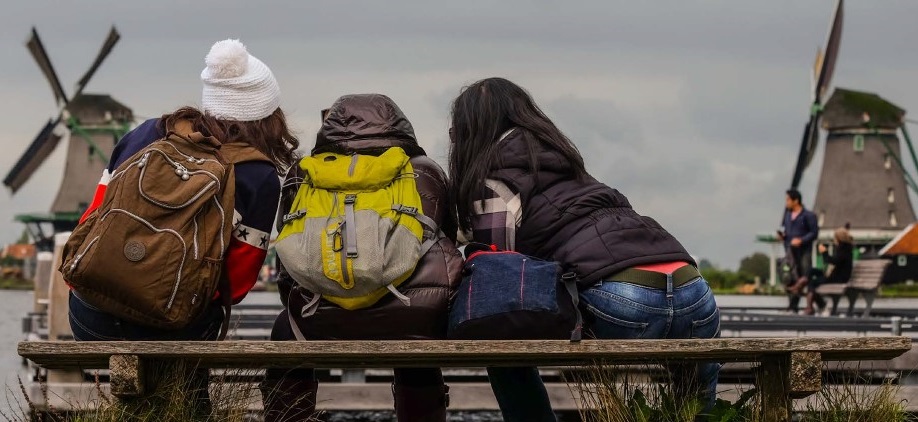
UNWTO and StudentMarketing join forces to underline relevance of student travel
Travel for study reasons is one of the segments that have resulted from the profound diversification of the tourism sector in the last years. With the aim of enforcing the uniqueness of this segment, the World Tourism Organization and StudentMarketing have signed a Memorandum of Understanding (MoU) agreement in the framework of the 22nd session of the UNWTO General Assembly.
According to StudentMarketing, a UNWTO Affiliate Member, the student travel segment amounts to US$ 120 billion in annual spending (including tuition, accommodation and living costs). Research data from 2016 affirms that 1,000 international students generate €14.6 million in revenues and create 220 new jobs in a destination. This generates tax revenue, enhances talent pools and attracts further investment. By 2020, China is targeting 500,000 international students. By 2025, Australia targets 750,000 international students, France 470,000 and Germany 350,000.
“Travelling for purposes related to education and capacity building, consistent areas of work of UNWTO, has become an interesting market niche within the tourism sector. Through this MoU we trust that this unique segment will gain the consideration that it deserves,” said Taleb Rifai, UNWTO Secretary General, at the signing of the agreement.
“We are proud to be continuing our close relationship with UNWTO, not only as an Affiliate Member but also through our expertise in market intelligence and data, which will only further enhance how market participants such as destinations can adapt to the growing and economically important student travel segment,” added Igor Skibickij, COO of StudentMarketing.
The MoU undersigned by UNWTO and StudentMarketing recognizes the growing importance of this niche. The agreement acknowledges not only the relevance of further research and more in-depth knowledge of the sector, but also the importance of educating and assisting stakeholders. The partnership reached builds upon earlier collaboration, including the ITB Youth Travel Summit, ICEF Destinations Meet Student Travel and a number of other industry seminars and workshops for UNWTO members. It also includes the elaboration of the paper “Education Tourism Student Travel”, produced in 2018.
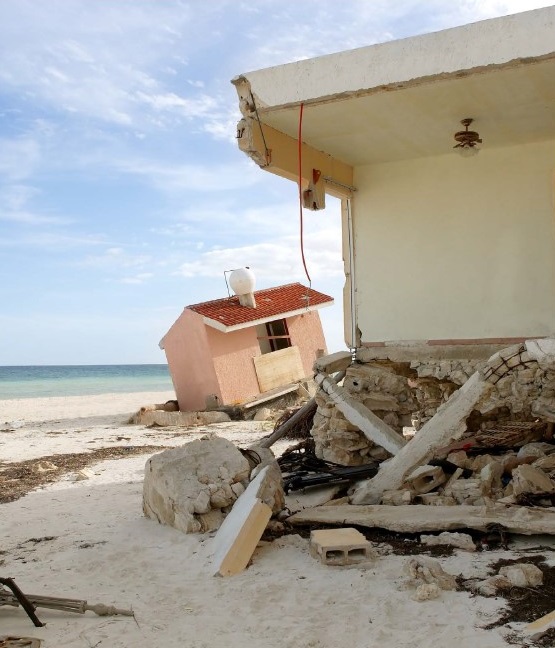
Hurricane Irma and Caribbean tourism: A Special Meeting at the UNWTO GA
Initiated by Jamaica’s minister of Tourism Edward Bartlett, a Special Meeting was organized on the occasion of the UNWTO’s 22nd General Assembly in to discuss how to support the destinations affected by Hurricane Irma and the earthquake that struck the southern coast of Mexico.
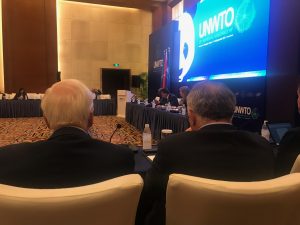
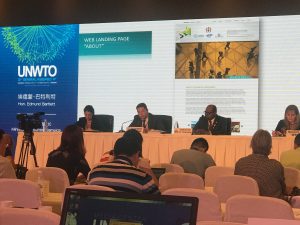
Combining a press conference discussing the upcoming sustainable tourism conference in Jamaica and expanding the subject to address the recent Hurricane Disaster in many Caribbean countries, representatives from all over the Caribbean including the U.S., Netherlands, France, and Spain met to discuss a next step.
The impact of these natural disasters on infrastructure and natural resources has been significant. Tourism is the main pillar of the economies and lifeline of Caribbean destinations. The meeting identified three lines of action:
• Supporting the recovery of the affected destinations through the private sector and aid agencies. IT was noted that special attention should be given to SMEs due to their lack of means to rebuild and recover.
• Sharing experiences on resilience and crisis management.
• Developing strong and coordinated communication.
The group also agreed to propose that the General Assembly to adopt a special resolution expressing solidarity and support to the affected destinations and calling for the support of the international community.
The UNWTO Secretary-General will convey the concerns and needs of the tourism sector in the region to the coming meeting of the UN Chief Executive Board which gathers the heads of the UN system.
A working group was created to follow up on the meeting’s discussions in close coordination with the Caribbean Tourism Organization (CTO), and the recovery of affected destinations will take center stage at the UNWTO/Government of Jamaica/ World Bank Conference taking place in Jamaica later this year.
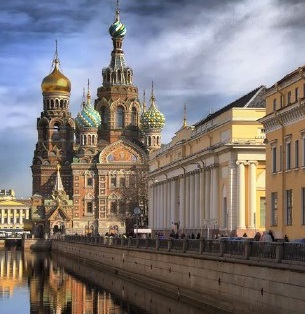
UNWTO General Assembly: See you in St. Petersburg in 2019!
Saint Petersburg in Russia has been selected to be the host of the 23rd session of the UNWTO General Assembly in 2019. The selection was made at the 22nd session, currently being conducted in Chengdu, China.
Widely admired for its majestic architecture, cultural richness and historical significance, Saint Petersburg includes treasures within the art collections of the Hermitage and the Russian Museum, among other notable attractions.
UNWTO Secretary-General Taleb Rifai stated, “Tourism in the Russian Federation is full of potential and to celebrate our next General Assembly in one of the most relevant cities of the entire world, Saint Petersburg, is a great opportunity to spotlight the progress made by the Russian Federation within the tourism sector.”
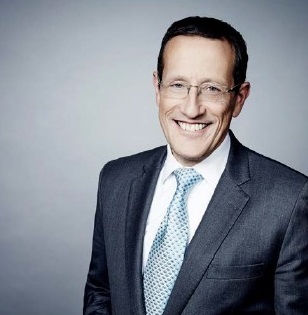
Interview with CNN’s Richard Quest
Foremost international business broadcaster Richard Quest is one of the best-known faces of the CNN team. Quest, who moderated the 22nd UNWTO General Assembly’s high-level debate on tourism and the SDGs, shares his views on the prospects of the sector.
Q – You have been reporting about the tourism sector for the last decade. How do you see the evolution of the sector in the coming years?
A – One has to bear in mind that tourism is one of the fastest-growing sectors in the world; its percentage of GDP is 10% and it represents 1 out of 10 jobs. Its significance is not in doubt. The question is how to grow in a sustainable way. Can the benefits be enjoyed by all or do we end up with a race to the bottom? That is going to be the big challenge: to create a tourism industry that is meaningful, sustainable and profitable.
Q – UNWTO works closely with the media and contributes to enhancing the capacities of journalists to report on tourism. What in your view is the role of the media community in supporting sustainable tourism?
A – The role of the media is not about promoting one view or another. Sustainable tourism is a policy already developed in the context of the United Nations and more precisely in the World Tourism Organization, as part of the SDGs.
Therefore, we have to report about it, about the progress being made and whether it has sense or whether it goes off the rails. I think that one thing that the media can become obsessed with is the question of if we are creating this framework, if the goals are being met, if UNWTO is doing the right thing or the wrong thing…That is not our job. Our job is to report on what is happening, how it is being enforced and how it is being monitored, and to point out the successes and those situations where more work needs to be done. But we are not in the business of promoting somebody else’s agenda. It would be a great mistake for people to believe that this is the role of the media.
Q – One of UNWTO’s areas of work is to support tourism administrations’ communication with the media. What would be your advice to destinations to improve their media relations?
A – You cannot engage with the media only when things are going well. You cannot contact people like me and say “I have a great story for you, come along” or “why do you not come and promote this?” A good story is a good story, but the real relationships are those that are built over a long period of time, where the media grows to understand the good that is happening in your country, the difficulties there and what is being done to solve those.
Tourism ministers who are in a regular dialogue with the media saying “this is what we are doing about sustainable tourism”, “this is what we are doing about terrorism”, “this is what we are doing about security” or “by the way, we have an issue with overcapacity or overbuilding on the seafront, this is what we are doing”… These are the ministers who will have my ear when they have a good story or a challenging story.
So, my advice to any tourism minister or tourism bureau is that media relations cannot be turned on and off. It does not work that way. You will get burnt. Longstanding relations with the media build bridges that both parties cross in the future.
SOURCE: UNWTO Daily, Author unknown.
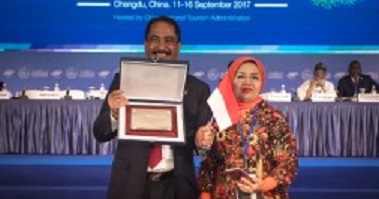
2017 UNWTO Video Competition: And the winners are..
UNWTO unveiled the winners of the 2017 Video Competition at the 22nd General Assembly held in Chengdu, China. Taking the People’s Choice Award was Indonesia.
Regional winners were:
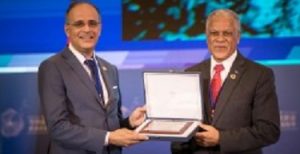
Africa – Tunisia
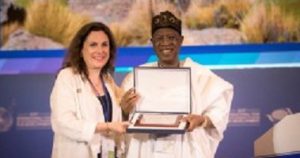
Americas – Chile
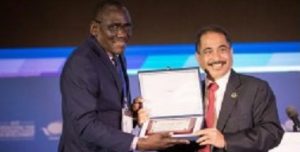
East Asia and the Pacific – Indonesia
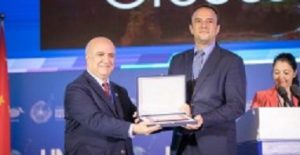
Europe – Greece
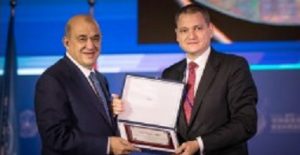
Middle East – Egypt

South Asia – Bhutan
